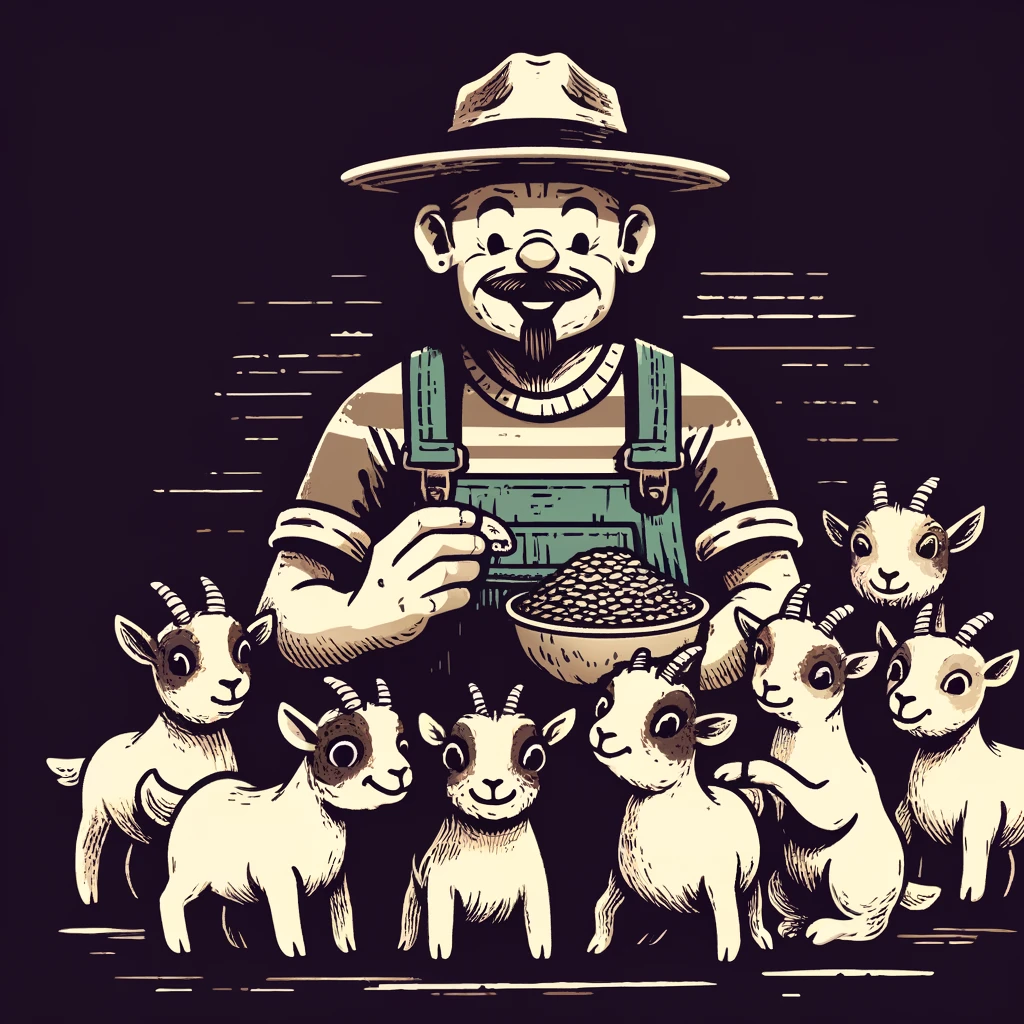Nigerian Dwarf Goats are a charming breed known for their small size and vibrant personalities. Originating from West Africa, these goats have found a special place in the hearts of farmers and hobbyists alike. As adults, they typically weigh between 25 to 35 kg and stand around 40-50 cm tall at the shoulder. Their coats come in a delightful array of colors and patterns, ranging from pure white to jet black, with various shades and combinations in between, making each goat uniquely beautiful. By the way, we are constantly learning about their genetics and how it affects patterns and colors – read more here and find out why Nigerian Dwarf Goats are a great addition to your farm
Value, Production & Perks
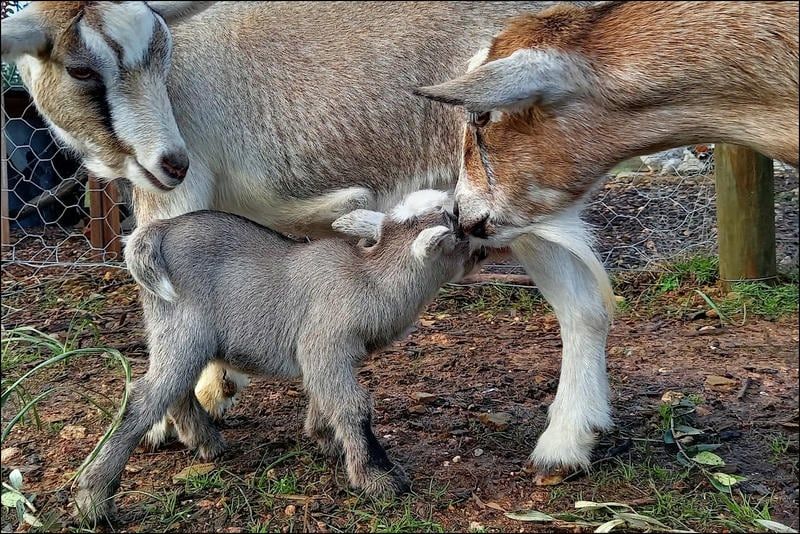
The value of Nigerian Dwarf Goats can vary significantly based on traits and colors. Some goats are better at milk production, which is rich and creamy, while others are more suitable as pets or as effective workers in permaculture setups. Larger Nigerian Dwarf Goats can even serve as meat (also called chevon) goats, although many prefer to use them for their excellent milk or simply as delightful companions. Their versatility makes them a valuable addition to any farm, whether for milk, meat, companionship, or helping with regenerative farming practices, like controlling invasive species or fire-hazard vegetations.
Did you know that nigerian dwarf goat’s milk has a high butterfat percentage between 5-10%, compared to cow’s milk at 3-4%; also lower lactose levels? It contains higher levels of calcium, potassium and vitamins A & D, making it nutrient dense, as well. As a little bonus, goat’s milk is naturally homogenized (meaning the cream does not separate as it does in cow’s milk).
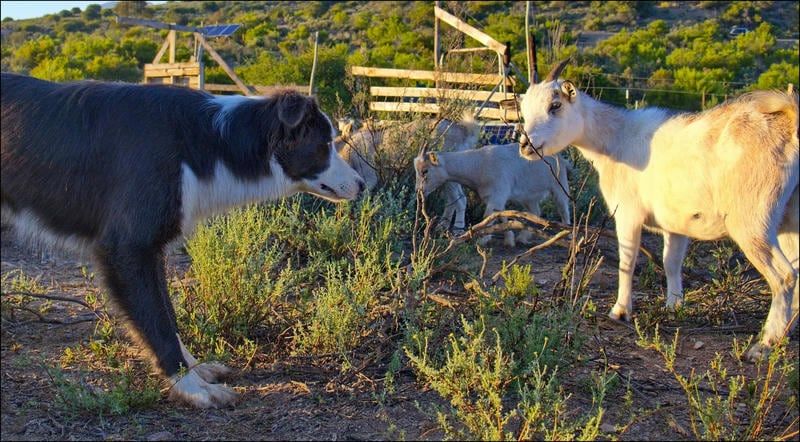
One of the greatest advantages of Nigerian Dwarf Goats is their manageable size, making them easy to handle. Whether you’re treating an injury, administering medicine, or assisting with births, their small stature simplifies the process. For those keeping them as pets, their friendly nature is a bonus, especially for children who love to play and interact with them. Training them from a young age to be comfortable with being handled is crucial, particularly for milking, as it requires the goat to be accustomed to being touched on its underbelly. With patience and consistency, most goats can be trained to fit seamlessly into your daily routines. We see each goat as a separate individual, because they each truly exhibit their own personalities, strengths and traits.
Ethical, Friendly, Respectful Farming
Ethical farming is at the heart of keeping Nigerian Dwarf Goats. Goats are browsers, meaning they prefer to eat leaves, shrubs, and weeds rather than grazing on grass like sheep. This natural behavior makes them excellent for controlling invasive plants and reducing fire hazards in the veld. It’s important to treat these animals with respect and care, ensuring they live happy, healthy lives. While very few of them may ultimately become meat goats at our farm, we believe in providing a natural and humane environment throughout their lives, far from the harsh conditions of factory farms. Every moment of their lives matters, and treating them with love and care is paramount. If we could choose, we’d put this practice back into the sustainable, caring hands of animal keepers to raise, love and produce their own meat. If anyone’s going to be using them for every possible purpose, it’s our responsibility are breeders and keepers to be there for them, and ensure a proper production and handling – wouldn’t you say?
Food and Feed
Feeding Nigerian Dwarf Goats is relatively simple and cost-effective. They require roughage (dry matter) daily, but if they have access to browse in the veld, they can get by with less supplemental feed. Typically, about 1/4 of a small bale of hay is enough for a herd of 10-12 goats per day (given enough browsing), supplemented with a few hundred grams of lamb & ewe or wildlife pellets. This not only boosts their energy and health, but also helps train them to return home at the same time each day. Depending on your environment, you can adjust their diet and grazing schedule to suit your needs. Here at Simple-Earth, we monitor and adjust as needed. There are times when they roam less, for instance, when the weather is inclement for long periods.
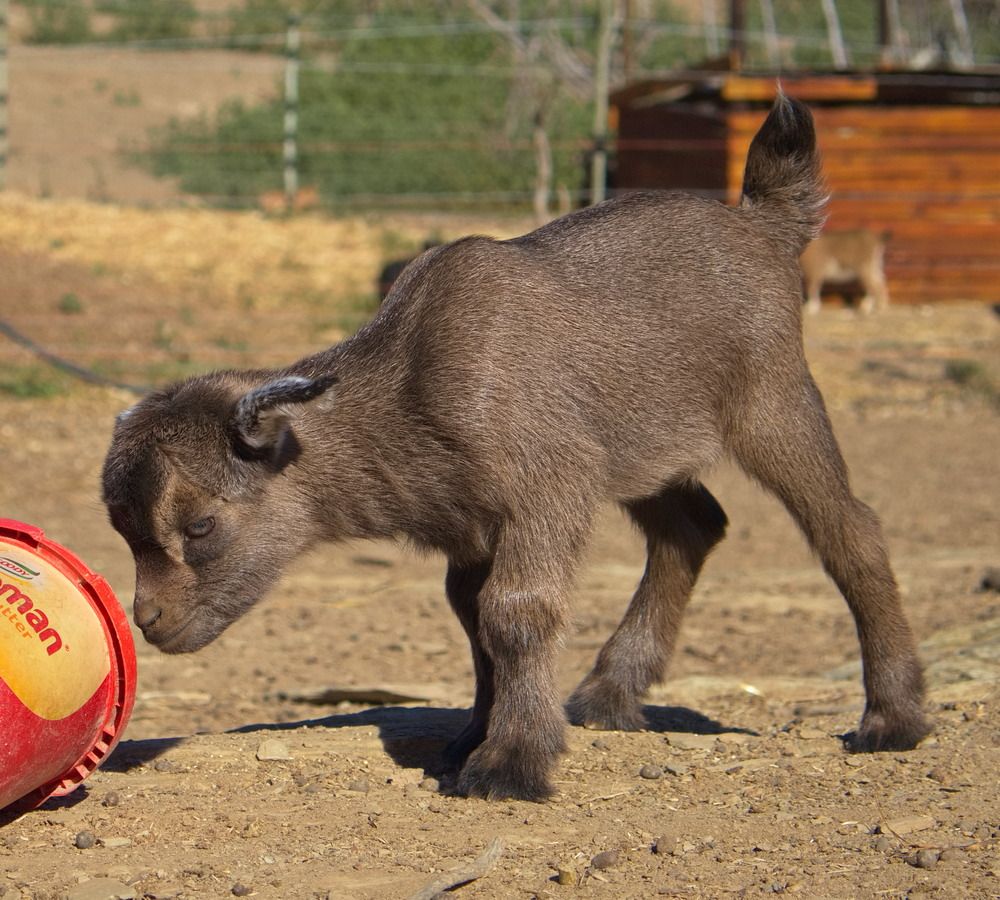
Enclosures & Shelter
Enclosure space for Nigerian Dwarf Goats varies based on your plans for them. Our 12-strong herd A thrives in a 10×10 meter enclosure, enjoying plenty of space because of their daily outings. A smaller herd of six goats does well in a 4×5 meter enclosure. The key is to provide enough space for them to run, jump, and play, along with a mandatory shelter to protect them from rain, which goats particularly dislike. Proper enclosure and care ensure your goats stay happy and healthy. In a constantly wet environment, you may want to have pallets or a raised floor in their shelter to prevent things like foot rot, scald, & thrush. Most of the time, you should not have many concerns, though. We like putting our enclosures on rocky, sloped areas to assist with drainage but also to facilitate hoof wear naturally. New borns (called kids) are strong and resilient, but on cold and windy days, they benefit from having shelter with the mother (at least until they are dry).
Breeding and Management
For those considering breeding, managing your herd involves timing, good fences, and understanding the needs of both does and bucks. Castrating bucks (turning them into wethers) is an option for controlling breeding. Nigerian Dwarf Goats are good mothers and can breed frequently, but it’s best to avoid over-breeding to ensure the health of both does and kids. While birthing issues are rare, it’s wise to keep lamb/kid milk formula and colostrum on hand, just in case. This may sound a bit forward, but we dislike the practice of inbreeding, too frequent breeding and unhealthy conditions.
Does which are bred too young can cause many issues for you and the doe. An improperly developed uterus can lead to long-term issues with does carrying multiple fetuses, for instance. A young doe, which is also still developing herself, will also compete with the fetus for nutrition. There’s a myriad of reasons for young-breeding to be a bad idea: long-term complications, tract infections and other problems will make her life, and yours, more difficult and costly. Ideally, do not allow does to become pregnant before 10-12 months of age and about 70% of their adult weight (even if they can get pregnant at half that age & weight). Your enclosure setup will go a long way in separating bucks from does, and rotating them happily and proving nigerian dwarf goats to be a a great addition to your farm or homestead.
A unique, valuable & fun way to farm smart
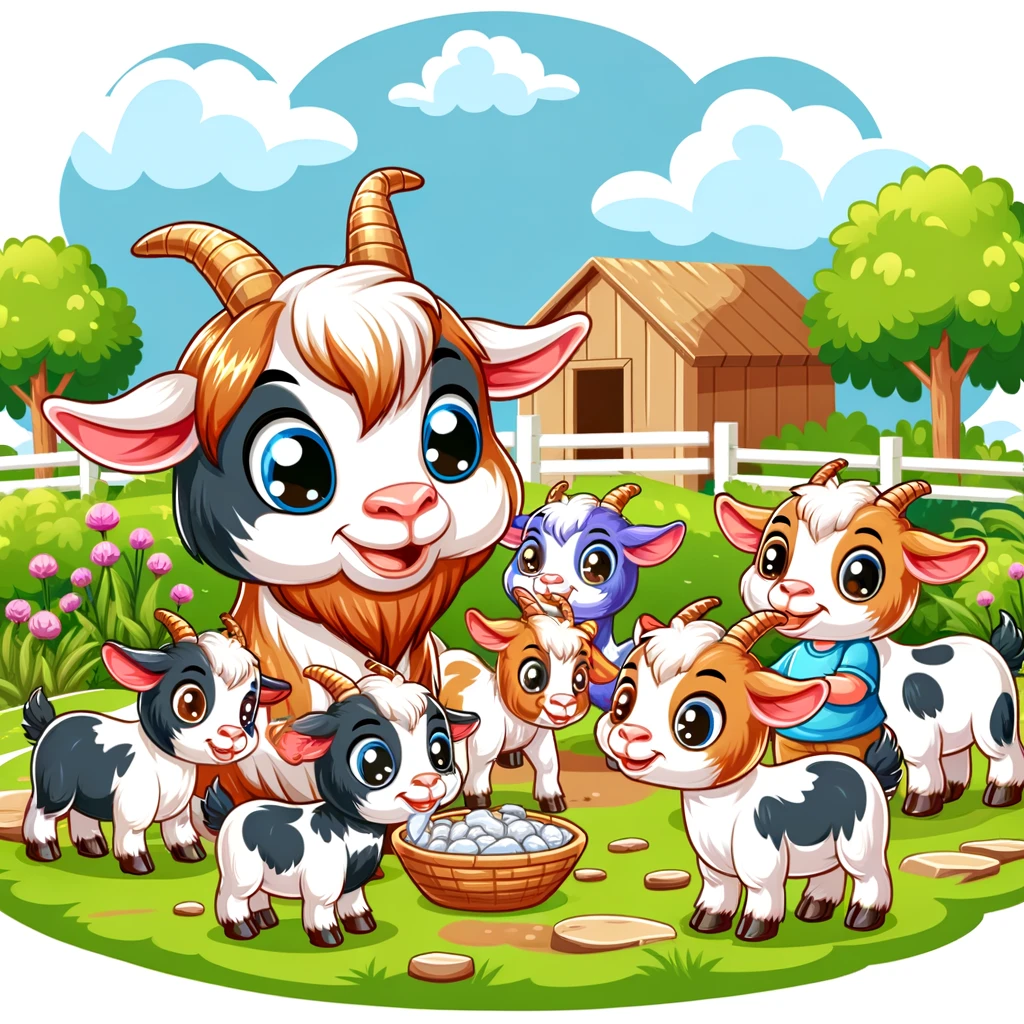
In conclusion, Nigerian Dwarf Goats bring immense joy and utility to any farm. Their friendly bleats, the fun of bottle-feeding kids, and the satisfaction of seeing them thrive make them a delightful addition to your homestead. Whether you’re looking for milk, companionship, or a natural way to manage your land, these goats are a fantastic choice. Enjoy the unique experience of keeping Nigerian Dwarf Goats, and you’ll find them to be wonderful and rewarding companions. If you want to explore this a bit more, have a look at my channel videos, as there’s a fair amount of goat stuff there. Research, read, care, love and dream goat, and only then will you know if you’re ready to go.
As Simple-Earth.org, we really cannot emphasise enough how important it is to realise your plan and goals for your goats. Breed responsibly to help maintain and boost the reputation and strength of the breed. By not mixing the breed with others, not inbreeding and not interfering with them, and keeping Nigerian Dwarf Goats true to themselves, will help promote this as a great breed; the one we have grown to love for many years.

